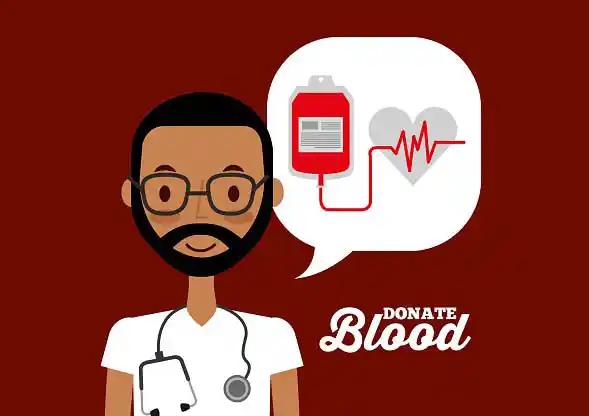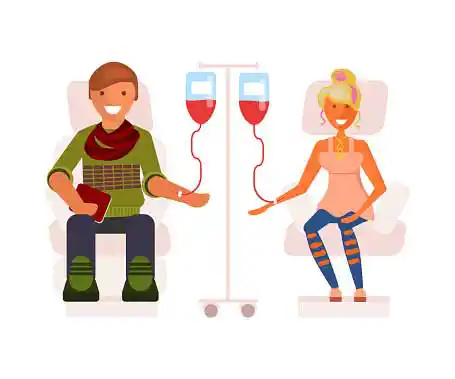Health Benefits Of Donating Blood And Who Can Donate It !!
Benefits of Donating Blood

1. Balances the level of iron in your body - Iron has a significant impact on the body and high blood iron can cause various chronic ailments such as Hemochromatosis (a disease caused due to iron overload in the body). However, by donating blood, 225mg to 250mg of iron from your body gets reduced thereby decreasing your risks of major health complications.
2. Improves your blood circulation - Repeated blood donations help your blood to flow better by thinning the dangerous thick, viscose blood that is known to damage to the lining of your blood vessels.
3. Reduces risk of heart attack and stroke - High level of iron stored in the body aggravates the risk of acute cardiovascular disease and stroke. However, regular blood donation helps to reduce the risk by lowering body's stored iron level.
4. Burns calorie faster - A single blood donation helps to burn around 650 calories !!!
5. Improves liver health - A reduction in the iron level from your body due to blood donation helps reduce the risk of various liver-related ailments like cirrhosis, liver failure, and damage to the pancreas.
6. Triggers formation of new blood cells - After donating blood, the body works to replenish the blood loss, and in turn, stimulates the production of new blood cells. This, in turn, helps us in maintaining a good health.
Donors' eligibility guidelines

A suitable donor should be a healthy individual:
- Above 17 years
- With body weight above 50 kg
- With vital signs like blood pressure and pulse should be in the normal range.
However, you cannot donate blood if you:
- Have been treated for Malaria or Hepatitis B and C or any other transmittable disease in the last three months
- Have a history of drug abuse
- Have received human pituitary hormone or any immunization in the last one month
- Indulge in high-risk multiple partner sexual behavior
- Have hemoglobin level less than 12.5gm/dl
- Take regular medication for any health disorder like hypertension, kidney alignments, epilepsy, or diabetes
Post blood-donation care

- Drink fruit juice immediately after donating, and consume at least 10-12 glasses of water within 24 hours
- Take rest for at least 20 minutes after donation
- Avoid sun exposure
- Avoid driving for the next 2-3 hours
- Avoid smoking for next 4 hours
- Avoid alcohol for next 24 hours


